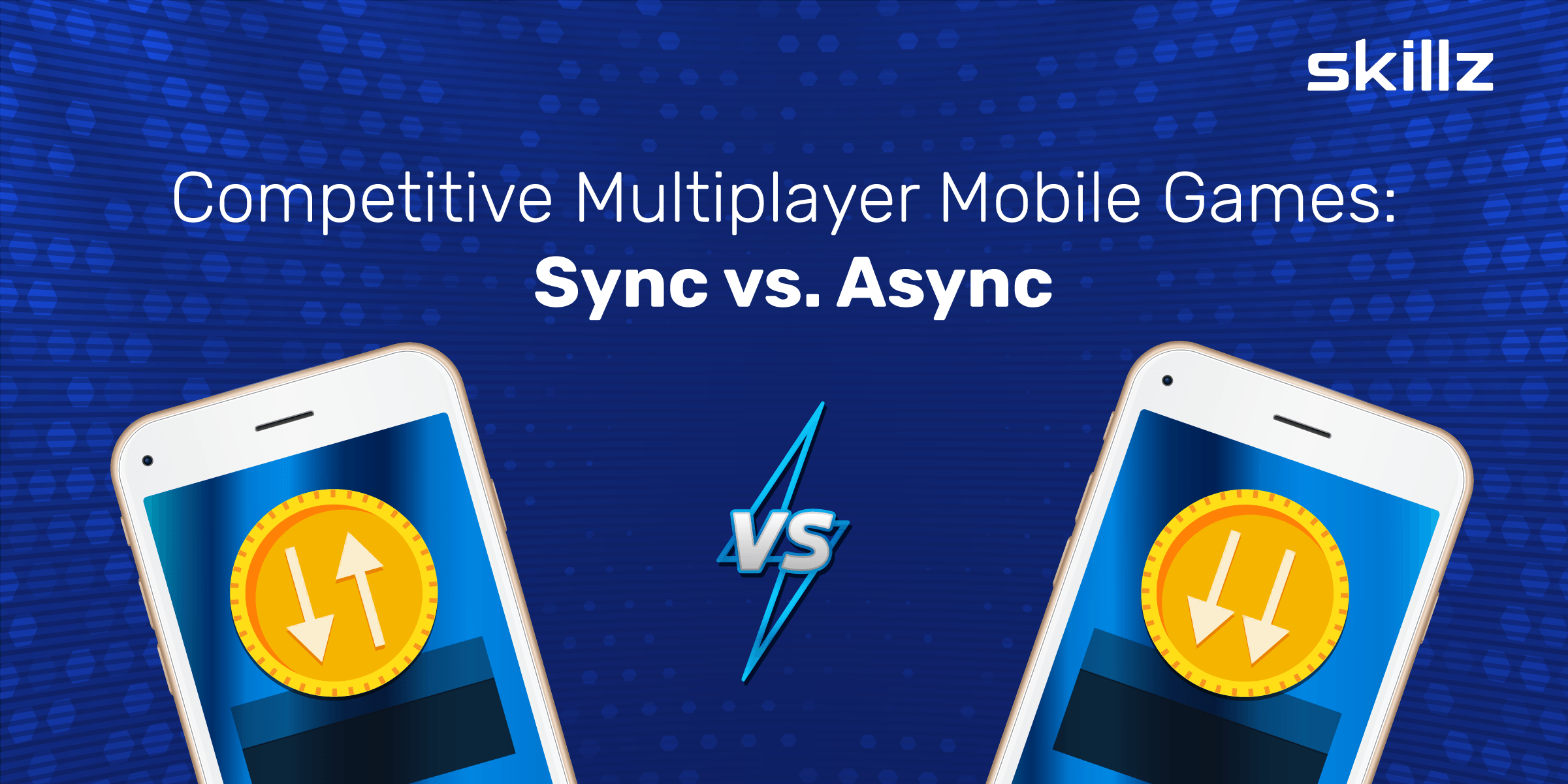Competitive Multiplayer Mobile Games: Synchronous vs. Asynchronous
Multiplayer mobile games drive long-term player retention by allowing players to compete for bragging rights or real prizes, and encouraging players to build social connections and communities through gameplay. To build a successful multiplayer title, developers must consider the game genre, style of gameplay, audience needs, and budget to drive early player adoption.
This blog focuses on two major types of gameplay for multiplayer mobile games — synchronous and asynchronous — including the benefits and drawbacks of both, as well as key developer considerations.
Key Terms Defined
- Asynchronous games: connect players through competition but don’t require them to play simultaneously.
- Synchronous games: players compete against one another in real-time; both/all players must remain within the game until its conclusion.
Asynchronous Gameplay
In many games, each player competes individually and the highest score wins. This format often checks all of the boxes for what a game’s audience demands. Players can quickly compete in a match and receive a notification when their opponent completes the match. This allows users to compete in multiple competitions without having to wait for another person to match against them. Overall, asynchronous play boosts player engagement and retention, especially for lower DAU games, as players don’t encounter substantial wait time in between gameplay.
Asynchronous gameplay tends to fare especially well on mobile because the large majority of mobile games and players are casual by nature. These players prefer shorter matches, simple core loops, and often play in situational environments that require multitasking. With asynchrony, gamers can play head-to-head matches and tournaments without being tied to the game for extensive time periods or risking losing their competitions due to external distraction.
Synchronous Gameplay
Having one person compete against another in real-time is a solid option, as players receive the additional psychological reward of contending on the same screen as their opponent. This creates strong social immediacy and reciprocity, which in turn builds player retention. Synchronous gameplay includes elements of unpredictability in the sense that a player cannot predict their opponent’s next move. On the other hand, it requires players to build skill and mastery through sustained practice to achieve victory. The random components coupled with players’ ability to improve over time make for a highly engaging and stimulating experience.
Synchrony also works well in games with engaging and immersive design elements, such as strong character development, top-notch graphics, and story-like gameplay. Additionally, synchrony integrates successfully with games maintaining a large existing player base that is heavily motivated by competition and social play. When developing a synchronous game, ensure it is well-built from a server perspective. Performance and latency issues are vital for games that rely on real-time interaction. If the game lags or crashes too often, it can significantly damage the player experience. To successfully launch a synchronous game, there needs to be a strategy in place to drive DAU during the initial game launch. Be sure to maintain a solid user base with sustained activity in your gaming community to facilitate player matching and avoid disruption in gameplay.
Choosing A Format
Whether you choose to develop your game with synchronous or asynchronous play, keep in mind your target audience(s) and their motivations, as well as your budget for driving player adoption. If you’re still not sure about which type of gameplay to focus on, then start with an asynchronous version of the game, drive up sufficient DAU, and then add a synchronous format.
Skillz’ competitive tournament system offers the opportunity for asynchronous and synchronous games to thrive. If you’re a game developer looking to turn your mobile game into a competitive multiplayer esport, check out our developer console. To get started today, sign up and gain access to valuable resources for integrating with Skillz.
